Subyeta Chowdhury
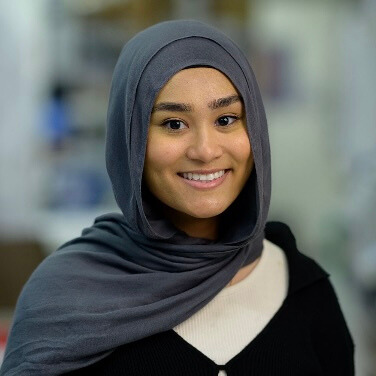
Subyeta is a graduate of the Macaulay Honors College at Hunter College, New York, where she earned a BA in Biological Sciences with a minor in Public Health. Born and raised in New York City, Subyeta’s personal medical experiences exposed her to the profound impact of medicine and scientific discovery. These experiences, coupled with clinical volunteer work in hospitals and nursing homes, solidified her aspiration to pursue a career that intersects both cancer research and medicine. She explored this passion through research experiences in Dr. Ross Levine’s lab at Memorial Sloan Kettering Cancer Center, where she contributed to projects focused on acute myeloid leukemia. In the summer of 2024, she deepened her research experience as a Harvard-Amgen Scholar at Boston Children’s Hospital, studying clonal hematopoiesis in the lab of Dr. Vijay G. Sankaran, current Sponsor to a Damon Runyon Fellow and Damon Runyon-St. Jude Fellow. Subyeta’s research efforts were recognized with the Horace W. Goldsmith Scholar Award from Macaulay Honors College. In her free time, she enjoys exploring New York City, building Legos, and unwinding with a good movie.
Imani Williams
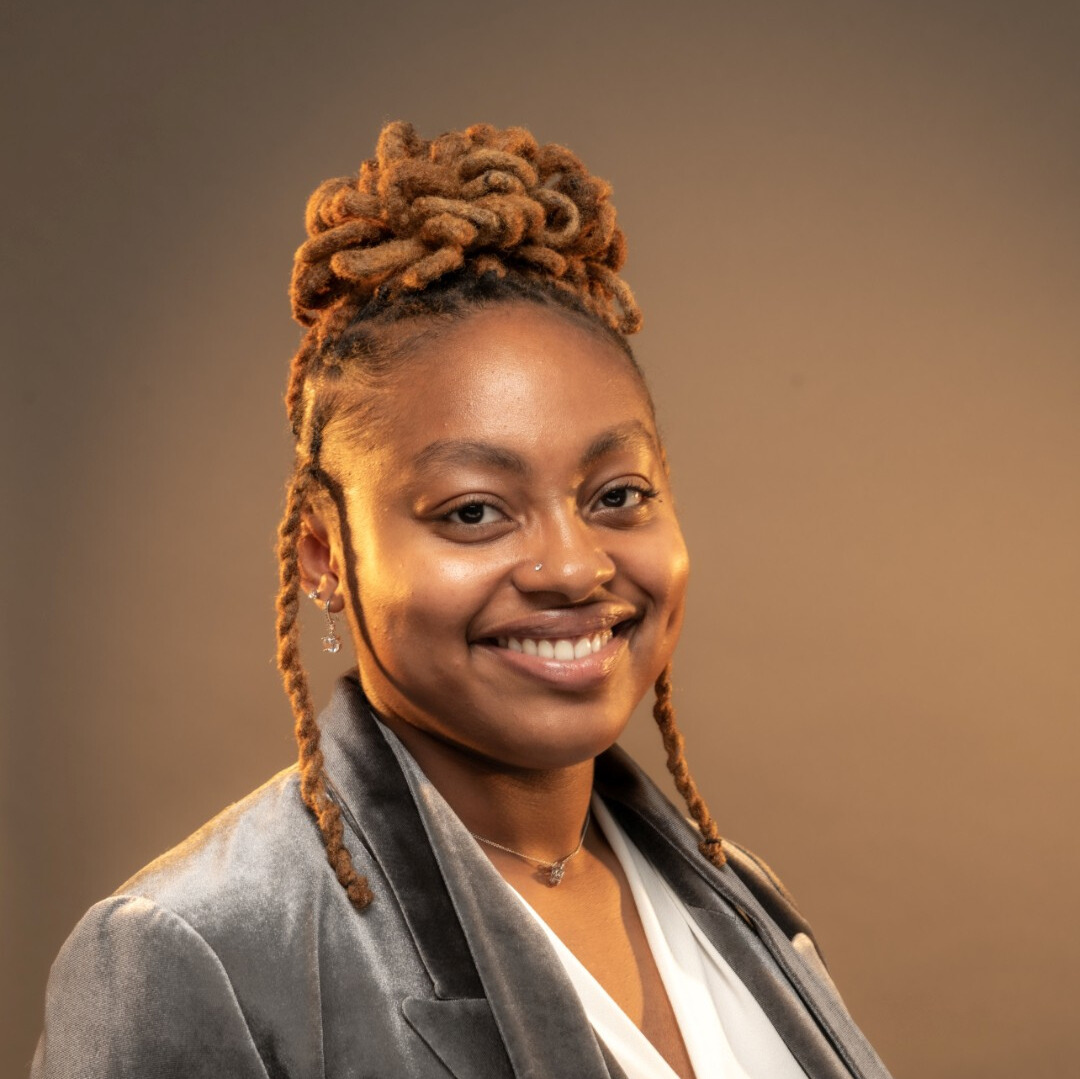
Imani was born and raised in Newport News, Virginia. She attended Howard University, Washington, D.C., as a first-generation college student, earning her BS in Biology with Chemistry and Psychology minors. After graduation, she was selected as a trainee for the New York Research and Mentoring for Post Baccalaureates (NY-RaMP) Program at Hunter College, New York. She worked in Dr. Jill Bargonetti’s (Damon Runyon Fellow ‘91-’94) lab, where she focused her efforts on the study of triple-negative breast cancer research and became passionate about cancer research. She is driven by the challenge of questioning conventional wisdom and exploring seemingly implausible possibilities. She is inspired by the opportunity to reshape the future of medicine, leveraging these innovations for the benefit of all patients. Imani is committed to advocating for those in need, and she believes that pursuing cancer research will allow her to make the most meaningful impact in society.
Rebecca Pasquarelli, PhD

In order to survive, cancer cells must evade or disable the immune system. Many cancers are caused by chronic infection with viruses that modulate the host cell by influencing gene expression to achieve this same goal. Dr. Pasquarelli [HHMI Fellow] is studying how viral proteins alter gene expression to create a tumor microenvironment that prevents the immune system from killing cancer cells. Since many viral proteins achieve this by changing the expression of secreted proteins, which can be therapeutically targeted, Dr. Pasquarelli is also exploring the effect of secreted proteins on tumor immune evasion. This work will deepen our understanding of how cancers evade the immune system and has the potential to uncover new targets for cancer treatment. Dr. Pasquarelli received her PhD from the University of California, Los Angeles, and her BS from Brown University, Providence.
Anna Karen Orta, PhD
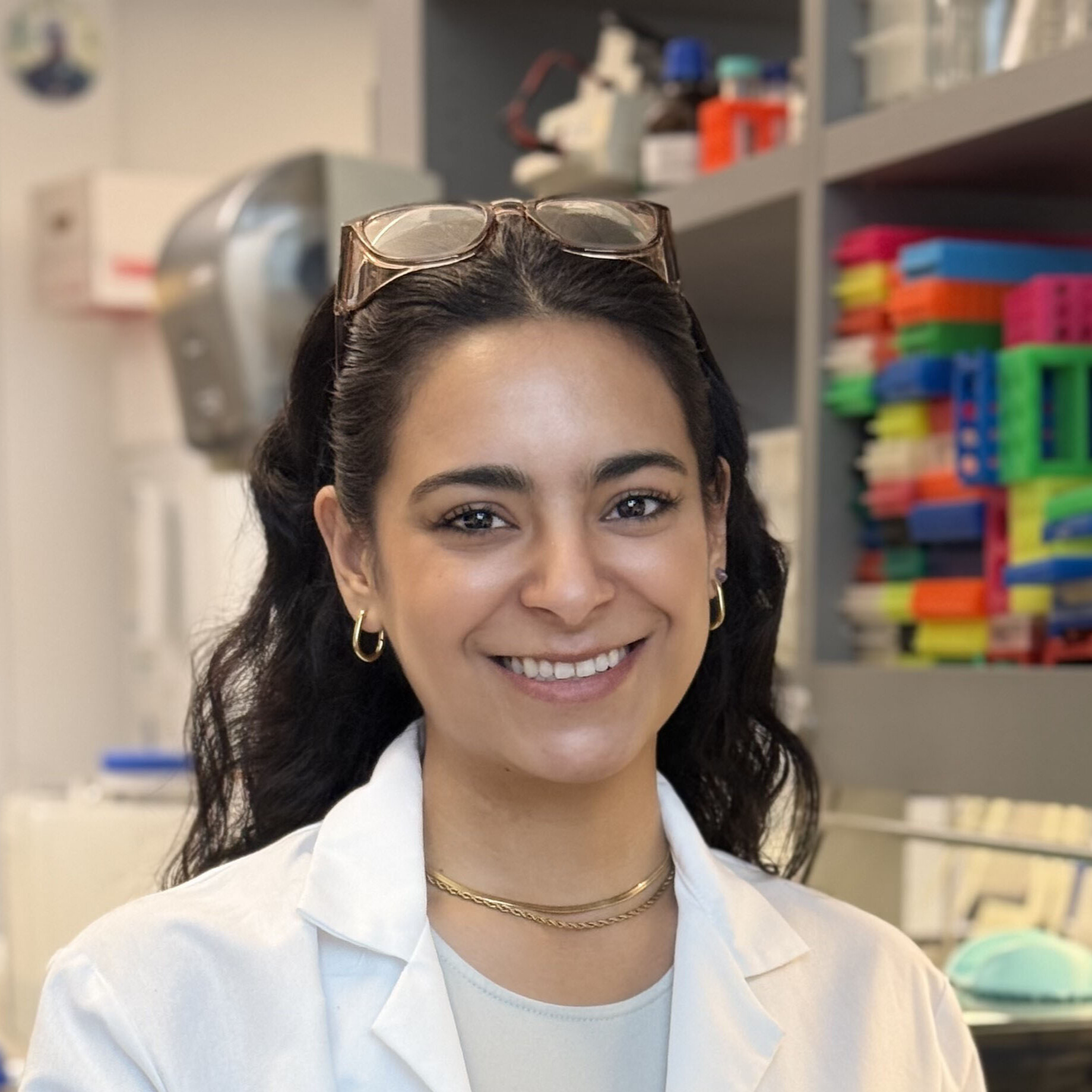
Mitochondria are best known as the cell’s power plants, but they also help cells respond to stress and repair their own DNA. A mitochondrial protein called ATAD3A plays a key role in these processes and is found at abnormally high levels in many aggressive cancers such as glioblastoma, breast cancer, and colorectal cancer, where it contributes to tumor growth and resistance to treatment. Dr. Orta studies how ATAD3A acts as a sensor of mitochondrial DNA damage—detecting trouble inside the mitochondria and helping signal to other parts of the cell, like the endoplasmic reticulum, that stress responses are needed. Using cryo-electron microscopy along with biochemical and cell-based approaches, she aims to uncover how ATAD3A is regulated and how its function supports cancer cell survival. Ultimately, she hopes to expose new ways to target mitochondrial stress pathways in cancer. Dr. Orta received her PhD from California Institute of Technology, Pasadena, and her BS from the University of Texas at El Paso, El Paso.
Hannah R. S. Martin, PhD
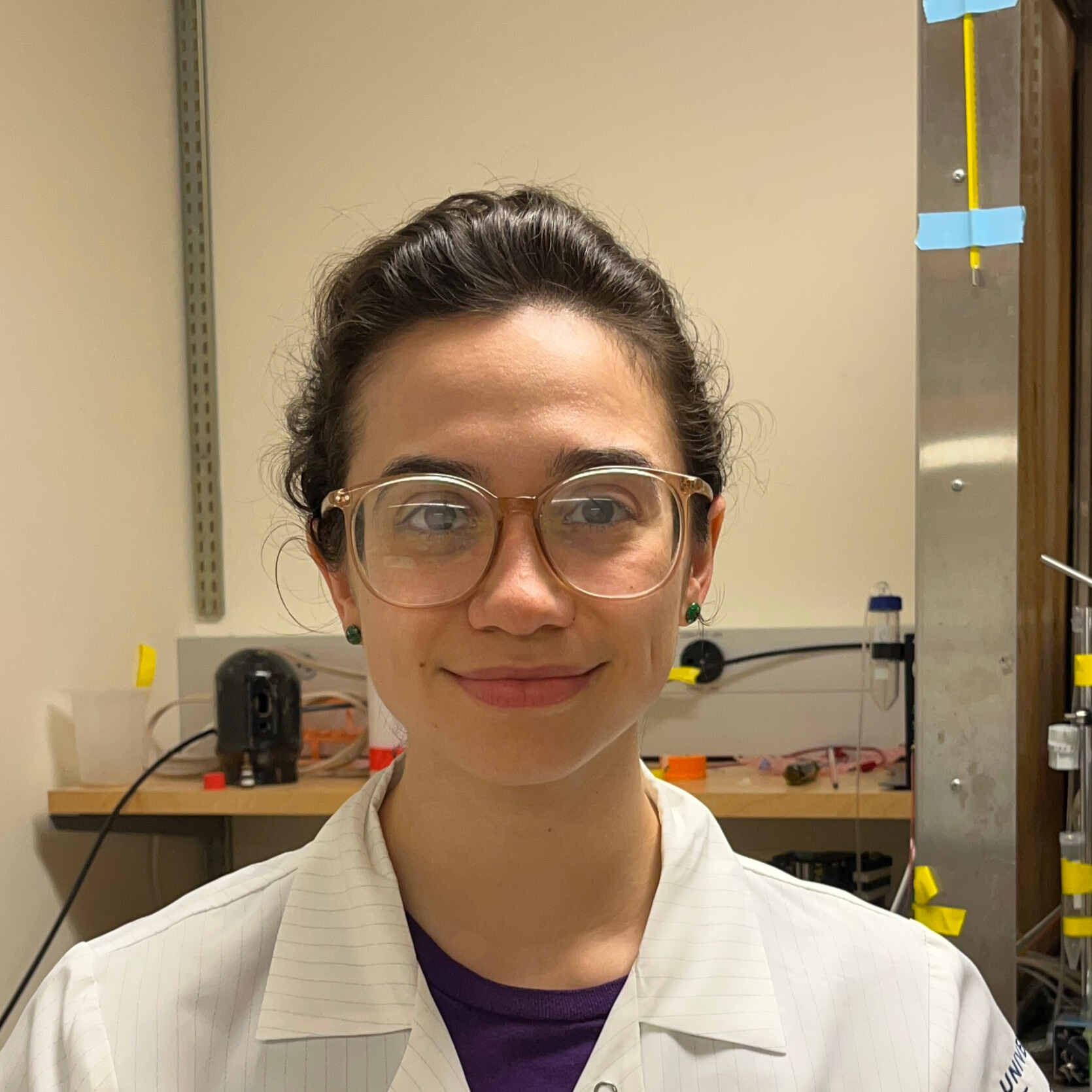
“Bone-deep pain” is more than a metaphor. Bones and joints are constantly monitored by sensory neurons (nociceptors) that detect damage and trigger protective pain responses. However, in bone cancer and osteoarthritis, this pain can become chronic and debilitating—especially when the bone’s rich environment is colonized by migrating metastatic tumor cells originating in the prostate, breast, or lung. Dr. Martin’s [Connie and Bob Lurie Fellow] research aims to uncover how skeletal sensory neurons are activated and remodeled in these conditions. Using neurophysiology techniques, she is mapping how skeletal neurons respond to potential triggers and testing a new hypothesis: that these neurons not only detect tumors but also influence their growth. This work may uncover new strategies for treating chronic skeletal pain. Dr. Martin received her PhD from the University of Chicago, Chicago, and her BS from St. John’s University, New York.
Charles S. Dai, MD

Some breast cancers and most prostate cancers express high levels of androgen receptors. Curiously, both activation and inhibition of androgen receptor signaling can result in tumor shrinkage, and the molecular mechanisms driving these opposing effects remain unclear. By studying circulating tumor cells from the blood, Dr. Dai and his colleagues found that this paradoxical effect is mainly caused by abnormal binding of androgen receptors to DNA, changing its three-dimensional structure and resulting in the shutdown of a key cancer gene called MYC. Dr. Dai may have discovered a way to therapeutically target MYC, which has long been a challenging drug target, by overactivating androgen receptors to disrupt the DNA structure required to keep MYC turned on. This could be a promising new strategy to treat certain breast and prostate cancers. He is now investigating why this effect occurs, and how many cancers could be treated this way. Dr. Dai’s research could lead to a new approach to cancer treatment: activating androgen receptors to disrupt the genes that cancers rely on to grow.
Simone Bruno, PhD
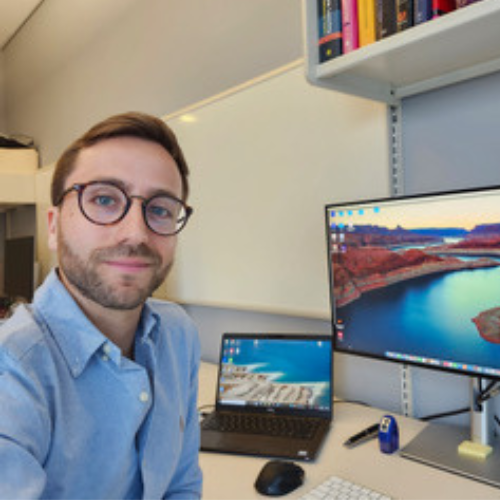
Triple-negative breast cancer (TNBC) is one of the most aggressive and difficult-to-treat forms of breast cancer. Dr. Bruno’s research focuses on how changes in DNA packaging, known as chromatin, affect cancer progression and treatment response. Using advanced computational models, Dr. Bruno will investigate the interplay between chromatin modifications and resistance mechanisms, with the goal of identifying strategies to mitigate therapy resistance and reduce cancer recurrence. While Dr. Bruno’s primary focus is TNBC, this research provides a generalizable framework that could be applied to other cancers where chromatin modifications play a key role, leading to better, more durable treatments for a broader range of patients.
In this project, Dr. Bruno will develop a computational framework that integrates mathematical models of chromatin modification dynamics with pharmacokinetic and pharmacodynamic models to study the role of these modifications in triple-negative breast cancer (TNBC) progression. Dr. Bruno will adapt existing chromatin modification circuit models to TNBC dynamics and, using Bayesian inference methods, will parameterize them with experimental data. By integrating pharmacokinetic models for specific drugs, this framework will enable the evaluation of diverse treatment strategies.
Sangin Kim, PhD
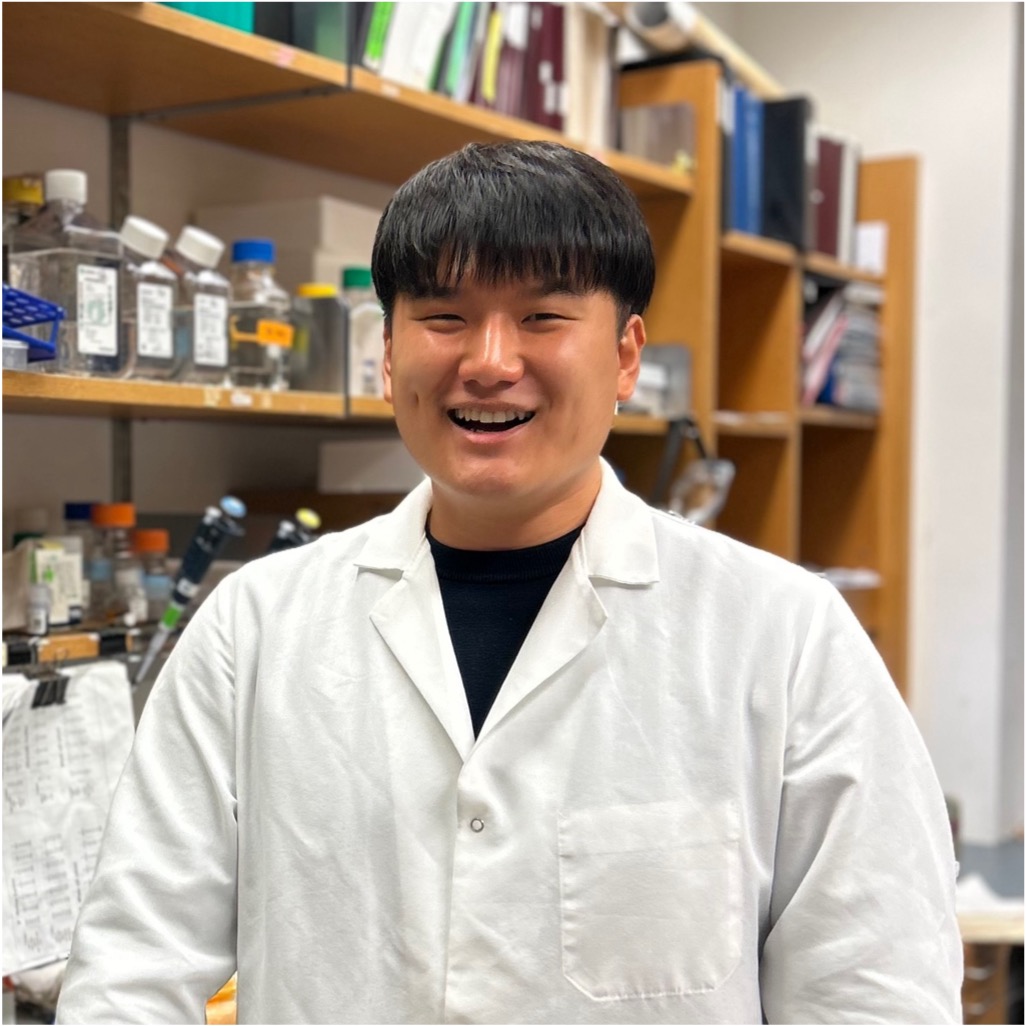
The cellular response to DNA damage is coordinated by an enzyme known as ATM kinase. Mutations in ATM are found in approximately 1% of the population and contribute to an increased risk of both hereditary and sporadic cancers, including breast cancer. Dr. Kim’s [Lallage Feazel Wall Fellow] research investigates how ATM suppresses the production of double-stranded RNAs (dsRNAs) in response to DNA damage. These dsRNAs play a critical role in tumor progression. Dr. Kim aims to identify the key molecular players involved in ATM-mediated suppression of dsRNAs and elucidate how the loss of ATM function triggers inflammatory responses through dsRNA sensing pathways. By uncovering these mechanisms, Dr. Kim aims to deepen our understanding of how ATM mutations drive cancer development and uncover novel therapeutic strategies for ATM-associated cancers. Dr. Kim received his PhD and BS from the Ulsan National Institute of Science and Technology, Ulsan.
Saket Rahul Bagde, PhD
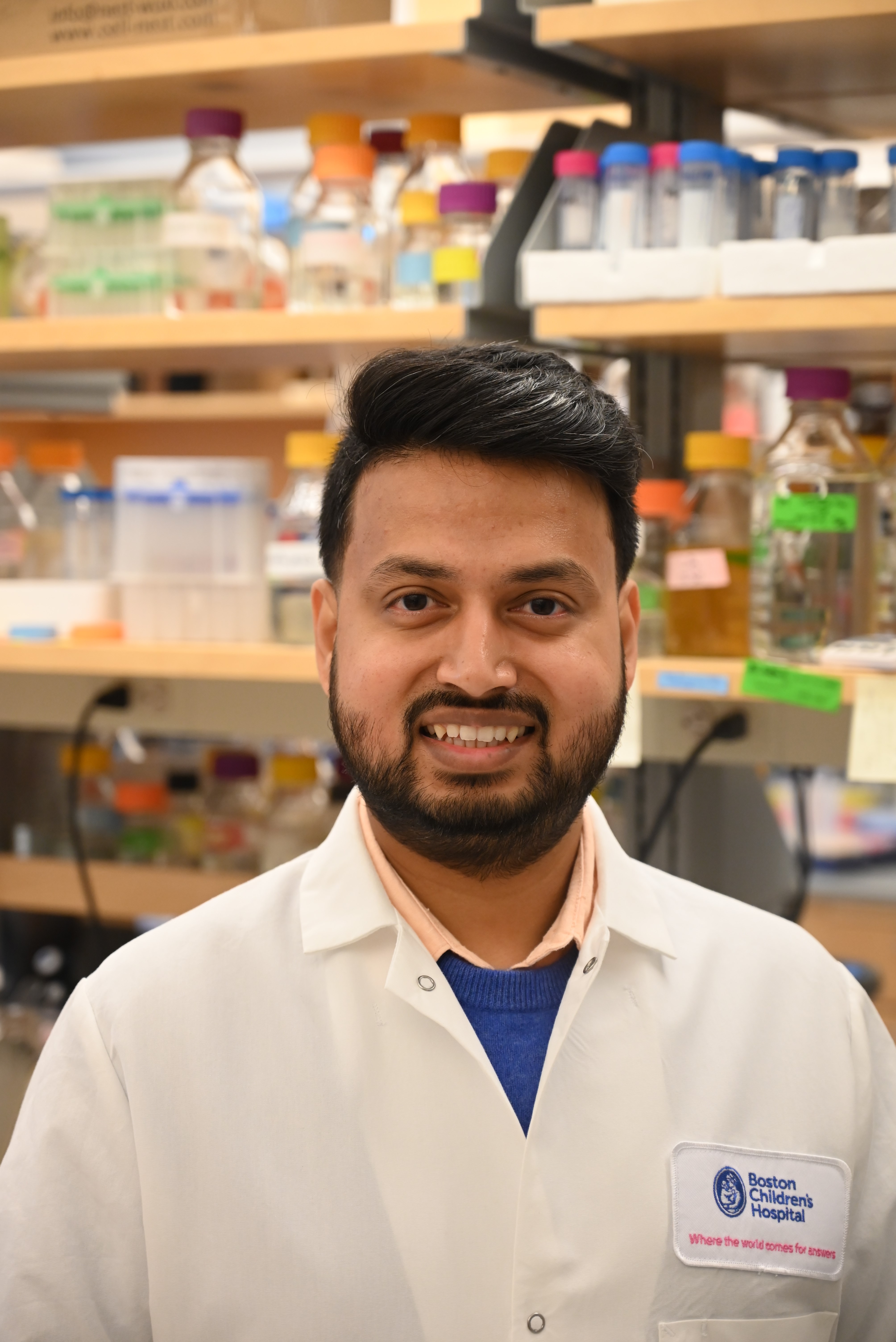
Most cancers develop in the epithelial tissue, which includes the skin and internal organ linings. Hemidesmosomes (HDs) are adhesive structures that anchor epithelial cells to the underlying base layer and maintain tissue integrity. While HD disassembly occurs normally during wound healing, tumor cells can exploit this process to detach and spread to other parts of the body. Dr. Bagde [Bakewell Foundation Fellow] is studying how HD components interlock like Lego blocks to form stable HDs in healthy tissues and how they disassemble in cancerous tissues. To investigate this phenomenon, Dr. Bagde plans to develop organoids—self-organizing mini-organs grown in a petri dish to study disease progression. By creating simple base layers that simulate the supportive properties of the native organ base layer, he plans to promote the growth of both normal and cancerous organoids. This work has the potential to support the development of personalized cancer therapies based on patient-derived tumor samples. Dr. Bagde received his PhD from Cornell University, Ithaca and his MS and BS from the Indian Institute of Science Education and Research, Pune.
Justin Perry, PhD

Dr. Perry [Damon Runyon-Lois A. Cinelli Awardee supported by the Cinelli Family Foundation] is investigating how a key immune cell in the tumor microenvironment, the macrophage, contributes to cancer’s development and progression. His work focuses on triple-negative breast cancer, as it remains one of the deadliest cancers, especially to young women and Black women, with decades of treatment efforts failing to improve patient outcomes. Specifically, Dr. Perry aims to combine novel methods of manipulating and imaging the cellular metabolism to better understand how macrophages contribute nutrients to help cancer cells meet their nutrient demand and escape treatment. This work will not only provide a method for diagnostic biomarker identification but also establish a novel platform for developing individualized treatments. Importantly, his work has the potential of being broadly applicable to all difficult-to-treat metastatic adenocarcinomas.
